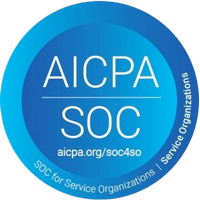To handle a national talent shortage and a large population of aging citizens, the healthcare industry needs to overhaul its staffing. This means both recruiting more aggressively and also finding ways to engage and retain the best of your new employees. But why is onboarding important in your journey to staff your workplaces, and what are the best practices to help prepare your new hires?
Onboarding is vital for a number of reasons. An effective onboarding strategy sets new hires up for success and betters the odds of retention. Here’s what you should know to develop an effective onboarding process.
Staying In Compliance
In your onboarding program, staying in legal compliance is likely a top priority. Collecting paperwork is particularly important in the healthcare industry, where audits can rack up hefty fees and grind work to a halt. Onboarding is your chance to ensure that all legally required documentation is collected and filed. With a strong onboarding process, you’re reducing the likelihood that you’ll encounter issues during future audits, and giving your staff a better chance of staying work-ready.
Healthcare managers have a lot to consider when it comes to onboarding and compliance. They need to protect staff’s sensitive information, track all relevant credentials, and make sure that new employees are fully aware of the HIPAA Privacy and Security Rules, and how these rules affect their work. While some employers have become more relaxed about HIPAA training during the pandemic, it’s important to make sure your employees fully understand their responsibilities, especially as they pertain to protecting sensitive information. In this way, you’ll help your employees perform their roles to the best of their abilities, and reduce your own risk in the future.
Nurturing Soft Skills
While legal issues and immediate responsibilities are often top-of-mind during healthcare onboarding, this period is also a chance to prepare employees in other ways. It’s a prime and often overlooked opportunity to help new hires develop their skills, including soft skills. In many cases, these soft skills determine whether a healthcare professional will be a good fit for their new role.
For some perspective, one study found that 37% of surveyed employees reported that their manager did not play a large role in their onboarding experience. That’s a missed opportunity, considering how important onboarding can be to preparing staff to be present with patients and colleagues. Managers have the chance to set the tone during onboarding and emphasize values like patience, positive attitudes, and communication. Stressing the value of these characteristics from the beginning helps you get off on the right foot and lead by example. During future evaluations, you’ll also have an easier time assessing how new hires are fitting in if you’ve set expectations for organizational culture.
Acclimating New Hires To Company Culture
Employee onboarding doesn’t have to stop at discussing the specifics of a new job. It can also start a larger conversation about company culture—and, therefore, help new hires fit in and thrive. It’s an unfortunate truth that employees who don’t fit into a business culture are often at higher risk of turnover, without the social bonds and support to keep them in their organization.
Onboarding is a key time to watch how new hires fit into the workplace and consider how you can help them acclimate. During orientation, introduce new team members to leaders in different departments. Consider an onboarding buddy program to help them make friends. You might also hand out welcome packets that include key information and basic information, including information on how to seek support.
Ensuring happiness and fit with new employees should be an early priority whenever possible. Most employees begin consciously evaluating their workplace in the very first weeks and months of a job. The early days may be when they decide whether or not to stay. In fact, approximately half of all hourly employees leave their jobs after working fewer than 120 days. In a high turnover industry like healthcare, some employee loss is inevitable. All the same, turnover rates can also be reduced with regular check-ins and a more supportive onboarding experience.
Helping New Employees Contribute Faster
Chances are, you’re hiring because you need staff in your workplace right now. You don’t need to waste additional time waiting for employees to make their way through on-the-job training. Often, more intensive training and preparation during onboarding actually saves you and your healthcare team members valuable time. With a little more time to prepare, staff will better understand their role, duties, and chain of command. That amounts to less time answering rookie questions, and more confidence in the performance of your newest hires.
Onboarding is one of the best moments to identify gaps in knowledge and experience, and work to resolve them. Take a pulse on your new hires’ level of comfort with their responsibilities to avoid compounding issues. Efficiently preparing new nurses for work means you’ll see less of a gap between capable and comfortable workers. Because of this, you’ll also reduce your need for temp workers, saving money overall.
Clarifying Roles and Responsibilities
Make sure your new employees fully understand their jobs, so they can proceed in their roles with competence and confidence. Taking the time to clarify responsibilities leads to better results in performance and employee engagement, and makes it less likely that new employees will leave their roles because they had an incorrect idea of their daily duties.
During these early clarifying conversations, you can make it clear that your staff members also have a responsibility to themselves. The healthcare industry is a demanding place to work, and unmanaged burnout is a common reason for employee turnover in the field. You don’t want your nurses to become exhausted to the point of seeking other options. Instead, take the chance to make sure they understand their benefits and the importance of actually using vacation time. Your staff should understand every part of their roles—including both their duties and their perks.
Encouraging Retention
In the past year, people have quit their jobs at higher rates than they have in years. More workers are leaving the workforce voluntarily, seeking better work-life balance, higher pay, or a chance to pursue their passions. You can help your staff see opportunities to grow in their current workplace starting from their first day. Go over their professional goals, and set up concrete growth plans, with the promise to check in after six months. With a little foresight and compassion, you can take important steps to boost new hire retention in your business.
People tend to stay at their jobs when they have the opportunity to develop and use their skills. Compared to workers who leave their jobs before six months, employees who stay are 33% more likely to report using their strengths at work, and 37% more certain that their careers are progressing. When employees are given the chance to thrive, in other words, they stick around for longer. If you’re not certain whether your new hire is getting the chance to use their strengths, just ask them. When you gain this insight, you also make it possible to implement change and increase your workers’ job satisfaction.
Conclusion
Apploi is on a mission to help healthcare recruit more successfully through smart job distribution, streamlined onboarding, and digital credential management. We automatically distribute jobs across 80+ sites and offer 1-click apply to attract the widest possible pool of qualified candidates. With digitized employee record-keeping and automated credential renewal reminders, we help you make sure your workforce is always ready.
Interested in learning more about how you can recruit, hire, and on-board healthcare staff quickly? Contact us today for a free demo of our end-to-end solution.





